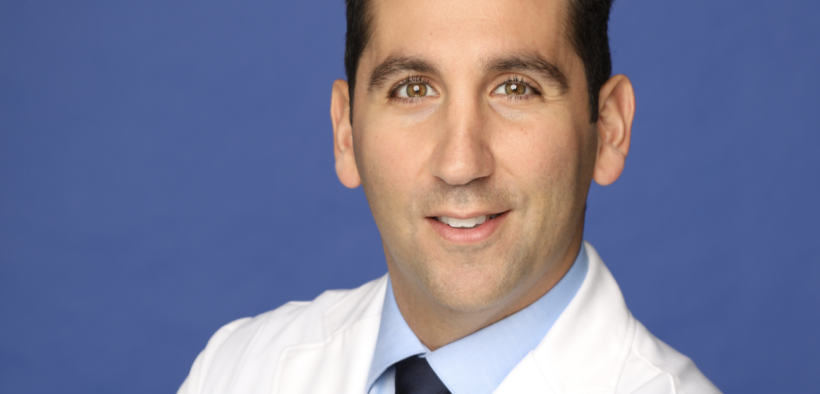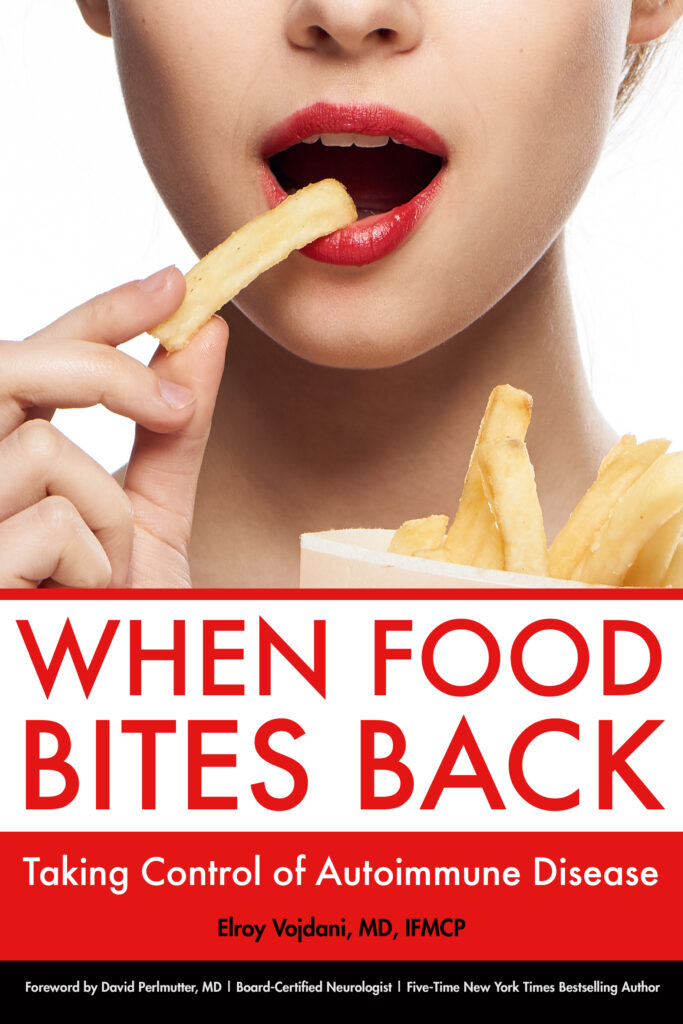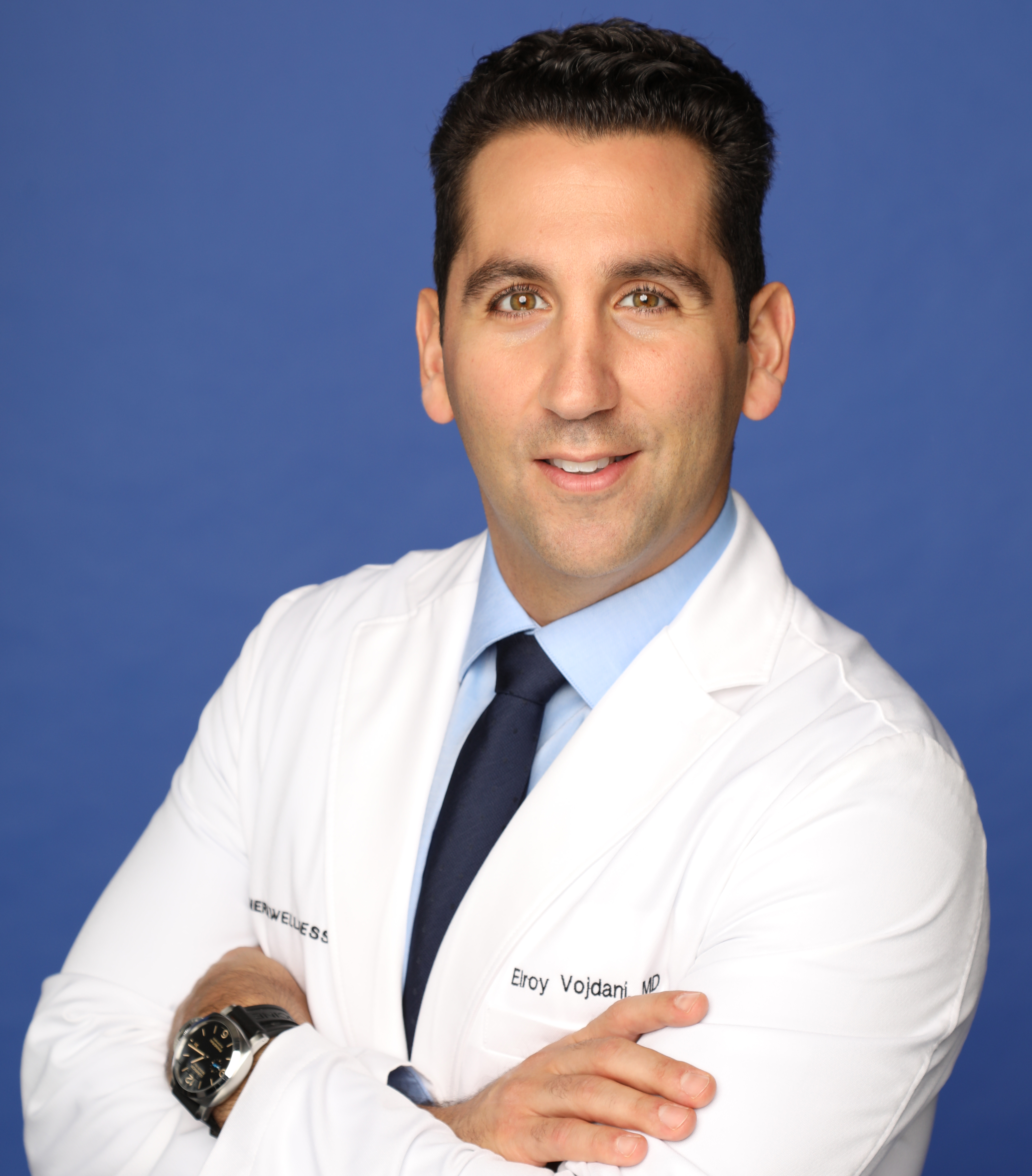Interview with Functional Medicine Pioneer, Elroy Vojdani, MD, IFMCP on His Career, and His New Book!
Share

For those suffering from autoimmune diseases, or those who know someone with an autoimmune disease, look no further! Dr. Elroy Vojdani shares tips on how to deal with changing your diet and how his new book strives to inspire people to make simple changes to avoid autoimmune diseases.
- Can you share with us the backstory about what inspired your specific career path?
EV: My father is an immunologist and Associate Professor, previously at UCLA, and now at Loma Linda University. His work and passion are in the world of autoimmune disease, and he’s dedicated his career and life to assisting with the identification of autoimmune diseases. With my dad being a very big research immunologist, I did a lot of work with him in high school, college, and throughout medical school and residency. My medical training was in interventional radiology, so I was doing minimally invasive surgeries which are different from what I learned with my father. I think that was part of my path – I needed to hone my own craft and prove to myself that I had my own gusto and power.
After I finished my fellowship, I started a private practice here in Southern California with a wonderful group of other young doctors. I went all-in on the hospital side of medicine and after a couple of years into it, I found myself depleted and honestly depressed. That style of medicine, which is all about trying to keep someone who’s at the end of a really debilitating long, chronic disease course alive was a bit of a soul-crushing experience. You really don’t do anything about the disease, or the suffering – you may really just be prolonging that – and for me, knowing as much as I knew about the world of immunology and disease prevention, I needed to feel like my energy and time was going into helping somebody hopefully avoid any of these sufferings.
Because of my research background, I decided to get retrained and certified with the Institute for Functional Medicine. I opened up my own clinic because I had a strong knowledge base in that world. It’s been almost 5 years and it’s been an incredible opportunity and very rewarding to help people prevent a debilitating disease become a part of their life.

- Can you share the inspiration for your book?
EV: I recently published my first book, When Food Bites Back, with the idea to provide a public education resource so that people can understand more about the immune system, how our food can impact the immune system, and ultimately how those two things can impact long-term health. I’m excited that the book is out. I spent a lot of time making sure it’s a good information resource for people starting their journey into understanding this side of medicine.
- How do you think, or hope, your book will help people?
EV: I believe strongly that we all have significant control over the current and future state of our health. I hope that the book serves as an inspiration for many people out there suffering from autoimmune diseases. I hope to inspire them to make relatively simple changes in their life that can have profound benefits on the way that they feel. For those that have a family history of autoimmune disease, I hope that the book serves as a resource to help themselves avoid or reduce that risk.
- None of us are able to achieve success without some help along the way. Is there a particular person who you are grateful towards who helped get you to where you are? Can you share a story about that?
EV: My father, Dr. Aristo Vojdani, is my motivation. He really had an incredible passion for being proactive about health. From a very young age, I grew up aware of the dangers of some of the common environmental toxins like plastic and aluminum. I remember when I was around 10 years old, our household did things like not using nonstick cookware, using glass containers instead of plastic ones, avoiding the microwave, and minimizing our use of aluminum. Before Whole Foods existed, there was a local store here in Los Angeles called Mrs. Gooch’s (which was eventually purchased by Whole Foods), where we would do all of our produce shopping when organic produce was first offered.
In many ways, my father has been a true pioneer and I learned a lot about healthy living and healthy lifestyles from him, as well as his colleagues from the early days of functional medicine. His guidance was meaningful to me, and when I went to medical school about 20 years ago, I began suffering from chronic sinus infections, brain fog, and irritable bowel syndrome. At the time, my dad was developing food sensitivity testing, particularly for wheat (gluten) and dairy (casein) peptides. I told him what my issues were and he ran that test on me. He told me that I had gluten and dairy sensitivities, and this was something that was unheard of and not talked about back then. I followed his advice and removed gluten and dairy from my diet as a trial and I felt like a completely different person by doing this. I didn’t have sinus infections, I was thinking clearly, I slept better, and overall, my body felt better.
I was able to perform to my maximum in that very demanding time in medical school. I really credit him for being the inspiration and resource to be able to execute something like that.

- The Covid-19 pandemic has affected nearly every aspect of our lives today, including how we eat. Can you articulate to our readers how food affects our health, beyond weight?
EV: Under normal circumstances, the immune system sees food as a friend rather than a foe. This is actually something that we spend the first three years of our life programming and is termed “oral tolerance”. Unfortunately, for many people today the immune system is losing its ability to recognize food as friend and is instead treating it as a foe – targeting and attacking as it would an enemy like a bacteria or virus. When we consume foods that we have immune reactivity to, we are creating small amounts of inflammation daily at the intestinal lining, and over time this inflammation can contribute to an imbalance or dysfunction of the immune system in general. We feel many vague symptoms during these moments – things like brain fog, IBS, eczema, fatigue, joint pain, and muscle pain. The foods that most commonly are the subject of a loss of oral tolerance, and therefore attack by the immune system, are gluten from wheat products.
- For our readers who find a whole diet overhaul overwhelming, what are 3-5 small changes they can make that could yield high health benefits for them?
EV:
- Go gluten free – Gluten is extremely inflammatory, and considered one of the leading causes of autoimmune disease. While not all gluten-free foods are created equal, or necessarily good for you, you can begin to slowly convert to gluten-free foods with something simple like pasta.
- Add a fermented food to your meal three times a week – Fermented foods like Kombucha, kefir, sauerkraut or kimchi, contain healthy bacteria that help eliminate toxins, and aid the digestion of nutrients from the foods we eat. Adding one of these fermented foods to your diet, several times a week, can also help strengthen the lining of your digestive tract to prevent leaky gut.
- Add a tablespoon of ground flaxseed to your daily smoothie – Flax Seeds are 41% fat and 21% protein. Increasing your protein intake with something like ground flaxseeds or chia seeds is an excellent source of protein to boost the immune system. Mix a tablespoon into your daily smoothie or yogurt parfait!
- Skip breakfast once a week – Intermittent fasting is an eating pattern that cycles between periods of fasting and eating. Intermittent fasting gives digestion a break and calms down the immune system. As you begin to take baby steps to prevent an autoimmune disease, you can also gradually increase the number of days you skip breakfast.
- Improve your sleep hygiene to get a better night’s rest – Sleep is the most important immune booster! When you sleep, cortisol and adrenaline levels drop, helping to counteract any inflammation your body has developed during the day. A few great sleep hygiene habits you can do include, setting a consistent sleep schedule, creating a relaxing bedtime routine, eliminating the use of screens like your computers, smartphones and TV during your bedtime routine, and exercising regularly.
- How can our readers follow you online?
EV: @RegeneraMedical







